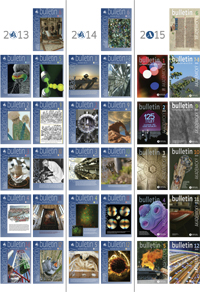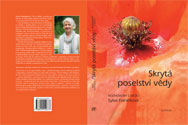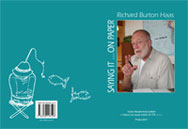
A young woman named Hana told me I was too harsh about \"very”. She said it was a handy word and that she often used it. \"Probably too often,” I thought. \"Very” is so overworked that it has lost its punch. \"I saw a woman this morning,” Hana said, \"and I thought she was very beautiful. What’s wrong with saying that?”
"There is nothing wrong with saying it,” I said, "and the way you pronounced ‘beautiful’ made ‘very’ unnecessary.” I reminded her that many of the things we say in conversation we would never accept in print. I explained that "beautiful” was a general term, and intensifying "beautiful” by attaching "very” to it emphasized the general nature of "beautiful”, and did not clarify the beauty of the woman. Then I suggested "glamorous”, "gorgeous”, "voluptuous”, and "stunning” because "very” does not sound appropriate when attached to these words, and they suggest more clearly the beauty of the woman. "Nevertheless,” she insisted, "the woman was very beautiful.”If this conversation had been a contest, Hana was far in the lead. "So,” she said in the manner Caesar might have spoken when returning from victorious battles, "what about ‘very’ is so very wrong?”
I knew she would not accept my claim that "very” was overused, dried-out, and unnecessary, so I resorted to Mark Twain. She was interested. Twain said: "Substitute damn every time you’re inclined to write very; your editor will delete it and the writing will be just as it should be.” A pedagogical victory, I thought.
She considered Twain’s quotation, as she might ponder the purchase of a sweater, then said, "I’ll think about it. That’s very interesting.”
Please do not misunderstand. I’m not opposed to modifying or intensifying words. It’s just that editors and careful speakers think modifiers are overused; perhaps they think the overuse is an attempt to cover up a paltry vocabulary. I’m sure I use "very” without hearing myself say it, but I certainly know when I’ve written it. I can cut "very” any time I see it in my writing, but when I say "very”, it slips out of my mouth. It’s gone; I cannot take it back. The frequent use of modifiers might be habitual and it might result from not finding the "right” word, so we medicate the less-than-perfect verb with an adverb. Consequently, we sprinkle adverbs on our verbs as liberally as we sprinkle salt on our tomatoes. My doctor tells me to use less salt, and I tell myself to use fewer adverbs.
Michael Harvey in The Nuts and Bolts of College Writing corrects examples of adverb misuse to eliminate wordiness and to establish clarity. Here are two examples: "Euthyphro continues to further justify his actions” becomes "Euthyphro continues to justify his actions;” and "The play carefully examines the disorder brought by civil war;” becomes "The play examines the disorder brought by civil war.” He also illustrates how rejecting an adverb can lead to more effective language and a more concise sentence: "Antony plays on the crowd’s emotions and successfully obtains their support” becomes "Antony plays on the crowd’s emotions and wins their support;” and "Socrates convincingly explains his position to Crito” becomes "Eventually, Socrates convinces Crito.” On several occasions, I have suggested cutting "carefully” from: "We then carefully scrutinized our results.” Since "scrutinize” means "to examine or observe with great care”, the adverb is unnecessary.
Nevertheless, we massage our verbs with what we think are stimulants. We think our verbs will fly faster, hit harder, say more, if we boost them a bit with "amazingly”, "excitingly”, "successfully”, "tremendously”, "carefully”, the British favorite "awfully”, and my pet peeve "very”. All too often, however, our utterances are weakened by what we think will strengthen our comments.
RICHARD HAAS,
Oddělení studia jazyků ÚJČ AV ČR


 English
English

















